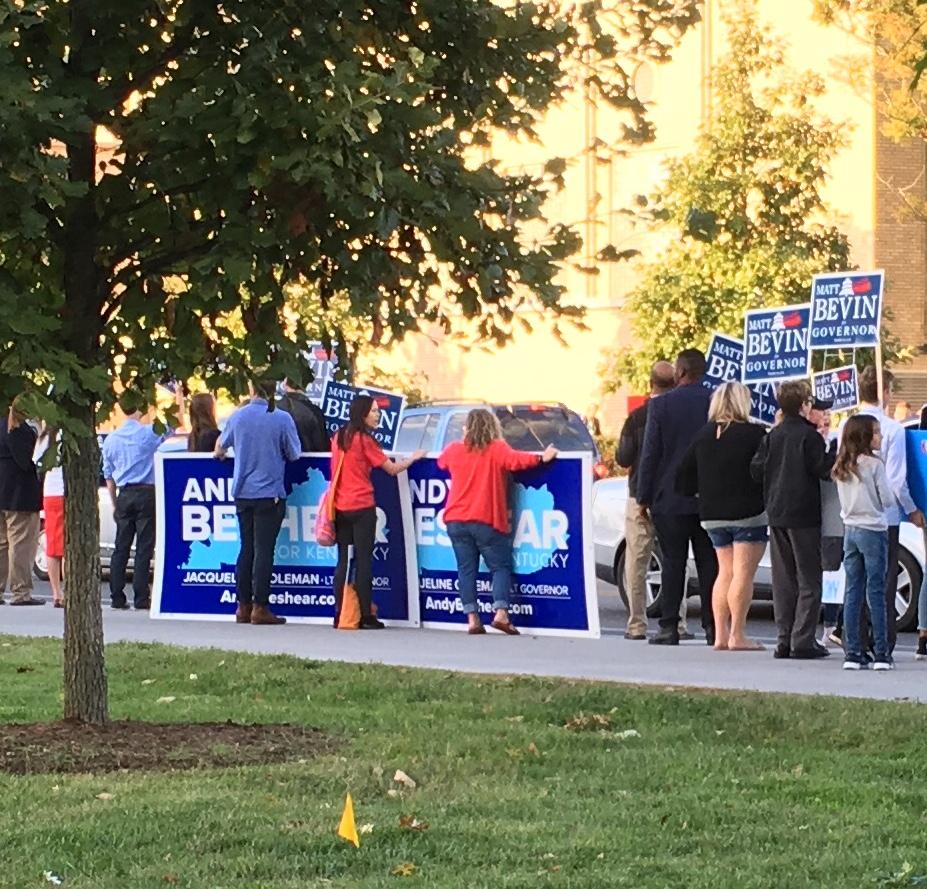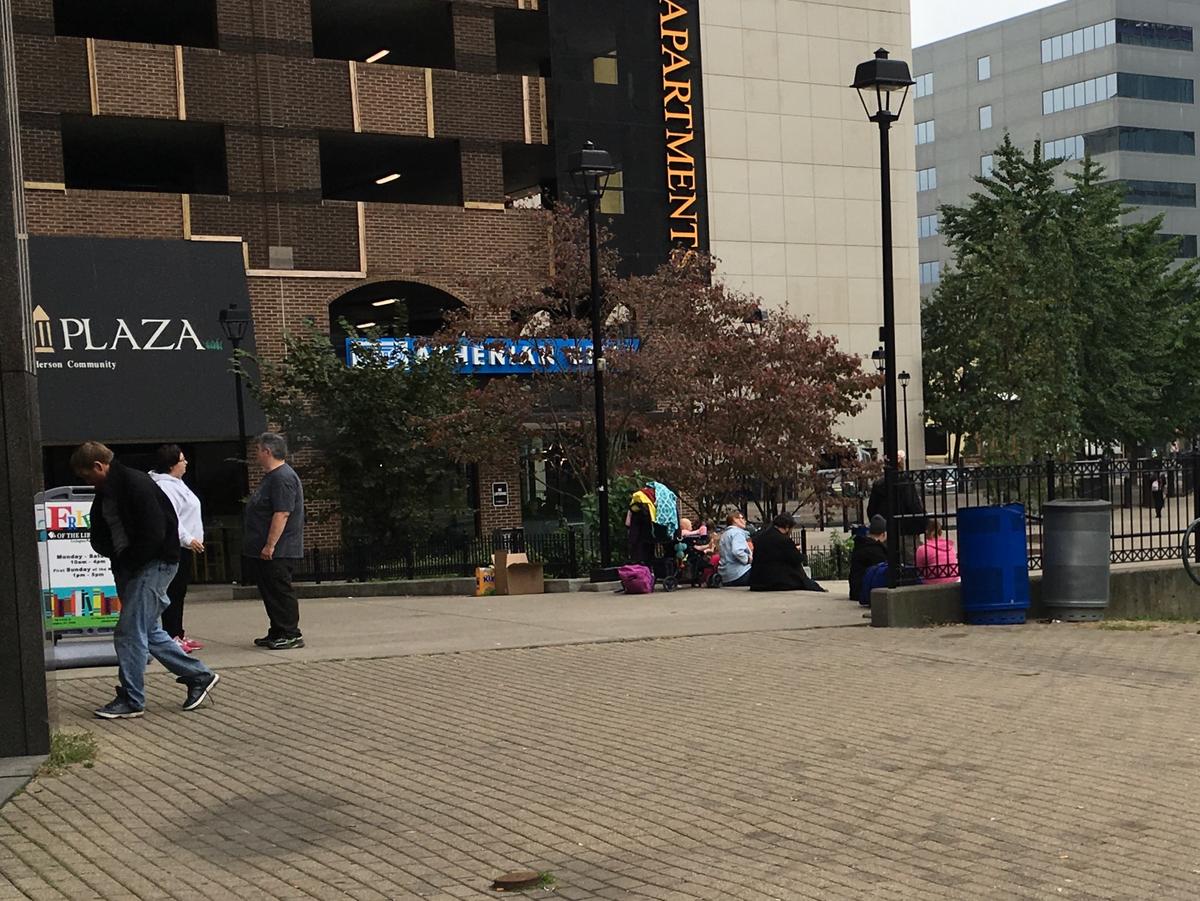By STU JOHNSON
In just over a week, Kentuckians will cast their ballots to decide who should serve in top state constitutional offices. Voters are used to partisan rhetoric in campaigns. But for central Kentuckians, is the campaigning generating political interest?
There are certain places you anticipate a fairly heavy dose of political thoughts like outside the recent gubernatorial debate in Lexington.
There political enthusiasts, backing different candidates, chanted “four more years” and “vote him out”.
Just prior to the debate between Gov. Matt Bevin and Attorney General Andy Beshear former state employee Heather Hackney and teacher Nick Harris discussed their political involvment.
Hackney said she has seen how political decisions impact how money is spent and how that influences the everyday lives of people.
Harris said he has a duty to his students to be aware of political trends.
“I can see how events made at the local and national level directly affect the lives of my students and their families and therefore affect decisions I make as an educator and it’s important for me to stay abreast of those things so that I can be effective in my job,” said Harris.
In downtown Lexington, attitudes about politics were starkly different for these three people. William Combs and Brittany Lambert were just outside the Central Library and Dean Marcum stopped at a corner during his midday jog.
Combs said “they just need to do a little better at what they’re doing in my opinion. They’re doing all right but they can do better.”
Combs said he sees little difference between various candidates.
“They’re all pretty much the same,” replied Combs.
Lambert said his reasons for voting are personal.
“Depends on the subject and whether or not it affects my personal life. It’s a selfish answer, but it’s an honest answer. If it affects something I do daily, it’s an eight or nine. If it’s something that doesn’t concern me or is out of my tax bracket, so to speak, it’s at a one or two,” said Lambert.
Marcum said he’s like to see less partisonship.
“I wish that people would kind of come more to the center and be more in a compromising position than being in the left or the right or however you want to describe it. To me it just seems like we’re not getting anything done and it’s hurting all of us,” explained Marcum.
Not far away on the University of Kentucky campus three students Drew Lane, Meagan Bowles, and Morgan Stinger all put their political interest level at 10.
People in the business often keep up with action in Washington, Frankfort, and Lexington’s city hall. Greg Dixon is with Smart Recycling Management and has worked in this industry for decades. “Sometimes politicians hear of an issue and they think they need to pass a law to impact that issue and they really don’t understand the whole situation, so there’s unintended consequences,” said Dixon.
Dixon said a vote can carry a direct impact, often found in a regulation tied to the recycling business. That’s why he’s found himself making trips to the nation’s capital. “We spend a lot of time in our industry now, lobbying and staying in touch, so that when legislators see something, they call us,” said Dixon.
Whether in business, in an educational setting or in a neighborhood political divisiveness can cause stress. Shannon Sauer-Zavala is an assistant professor at UK in clinical psychology. She said this type of tension can lead to people wanting their voice to be heard. “Scrolling through the news in an obsessive way, checking Facebook and getting into it with people that disagree with us on Facebook, it doesn’t exactly exact the political change or the control that we’re looking for, so it gives us this kind of quick fix like ‘ok I’m doing something. Doing something to solve this problem’. But, often it ends up making us feel worse in the long term,” noted Sauer-Zavala.
What role can spiritual beliefs play in consideration of political beliefs? Lexington Theological Seminary Assistant Professor of Preaching and Worship Leah Schade maintains politics and religion have mixed, quote, “from the very beginning.” “When you look at scripture, whether it’s in the Quran or the Hebrew scripture or the New Testament, you will find that the writers of these ancient texts were very much concerned with political issues. Now, I want to make a distinction between political and partisan,” explained Schade.
Schade added those political issues could range from taxation, to medical care with passages about healings, to caring for widows and orphans.
Schade is a firm believer in using a deliberative approach within a church community to reach consensus on how to address pressing issues. “That may look different like valuing families may look different for the conservative person than it does for the progressive person, but we can at least agree that we care about families. Good, that’s a good thing. Then the final phase of deliberative dialogue is to say ‘what are next steps that we could take’,” said Schade.


